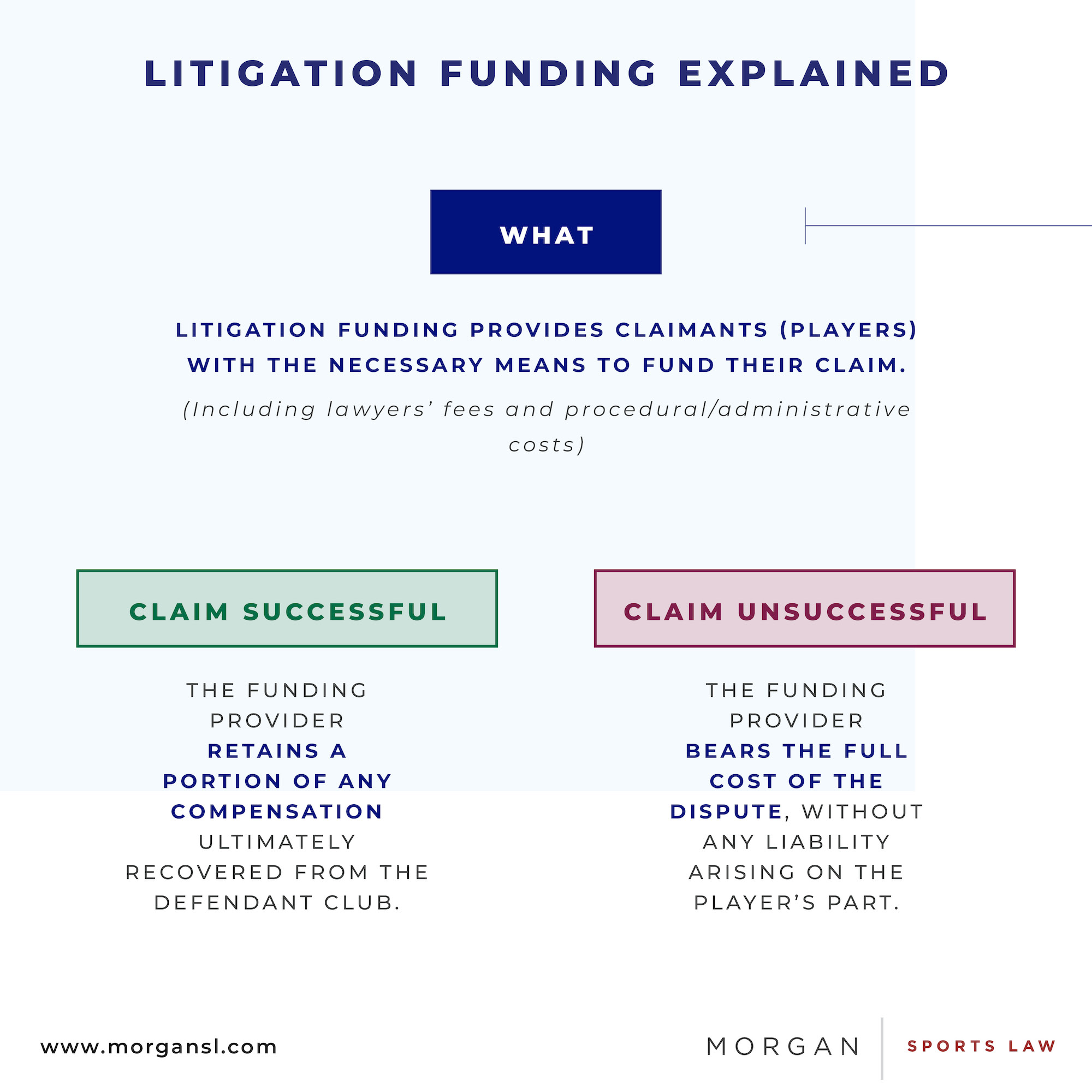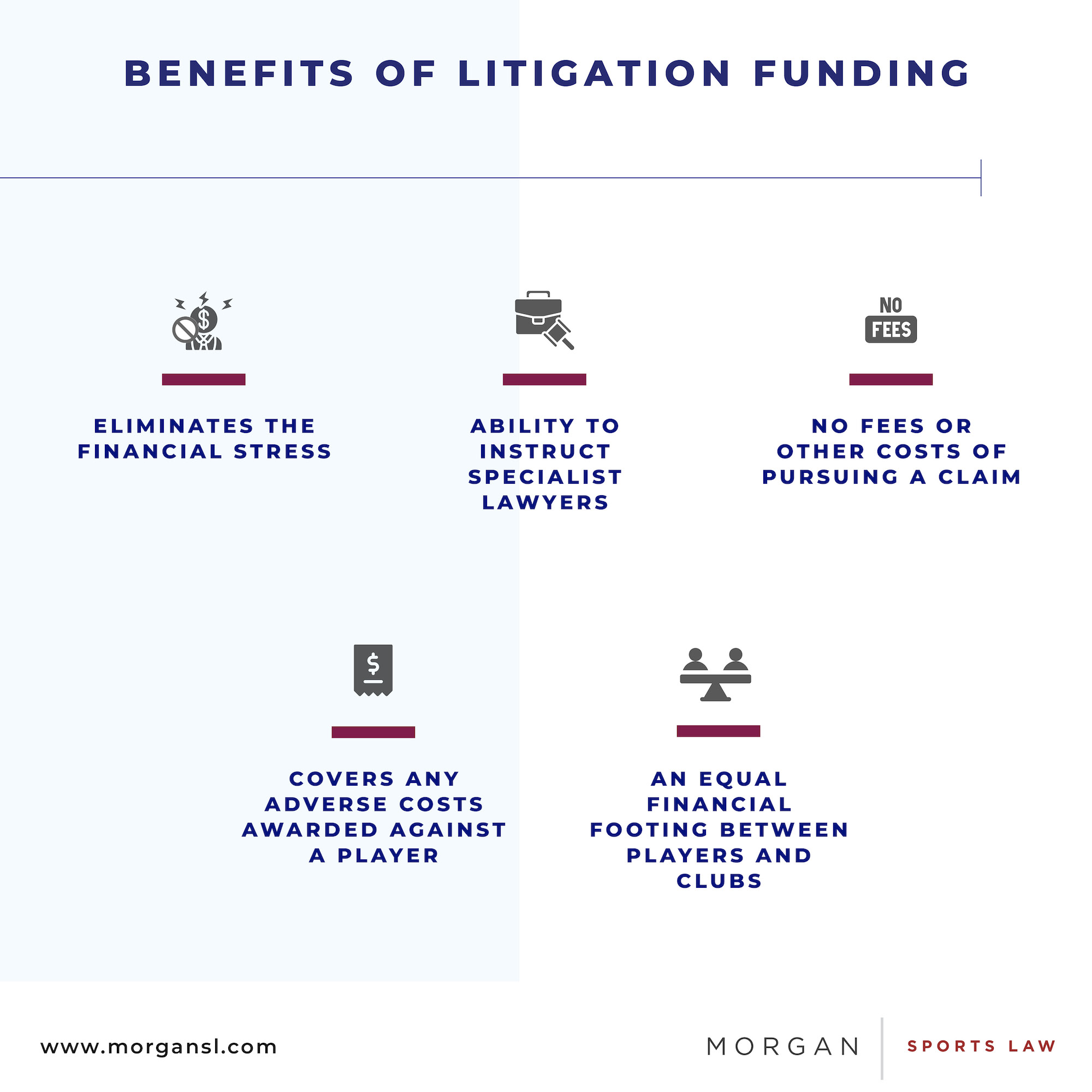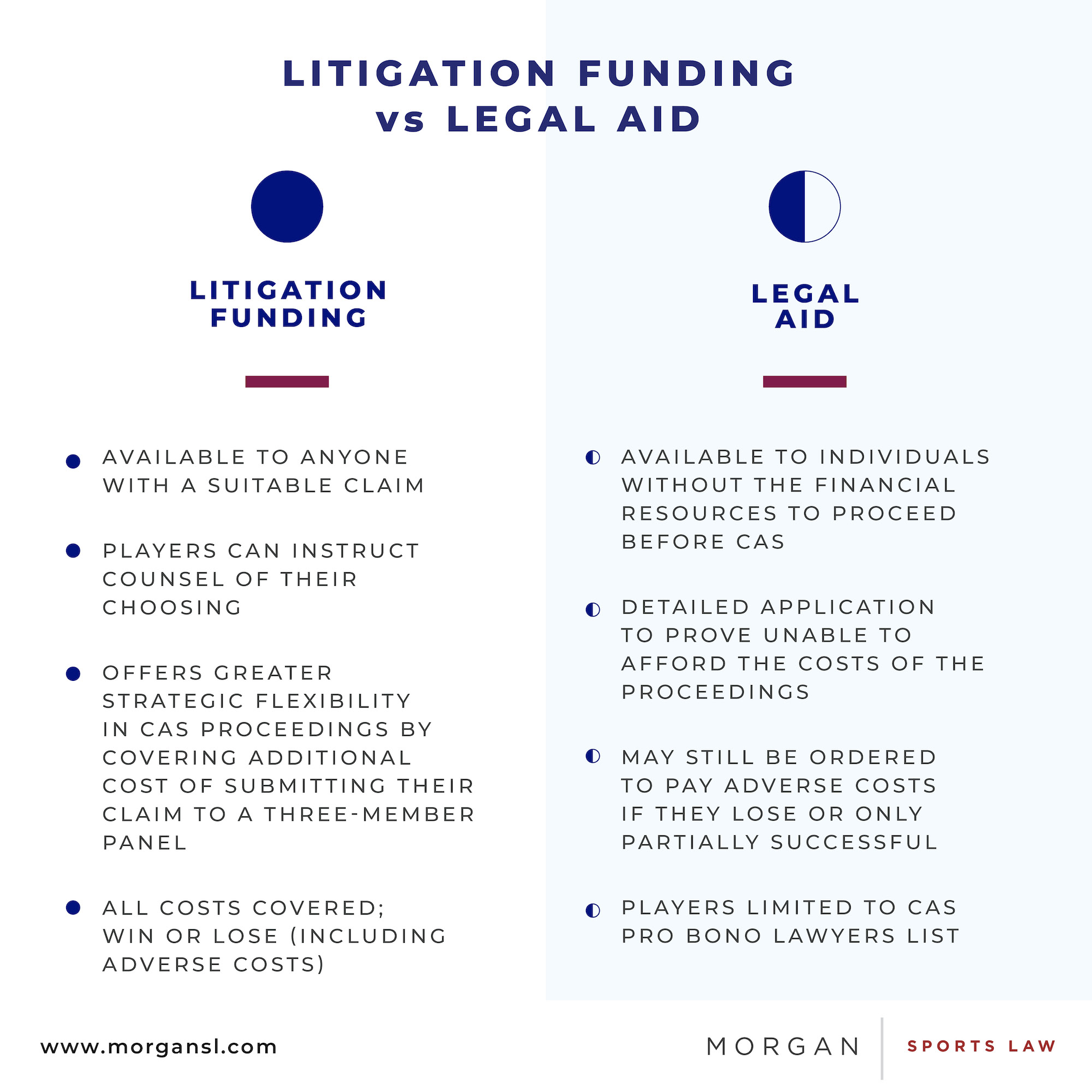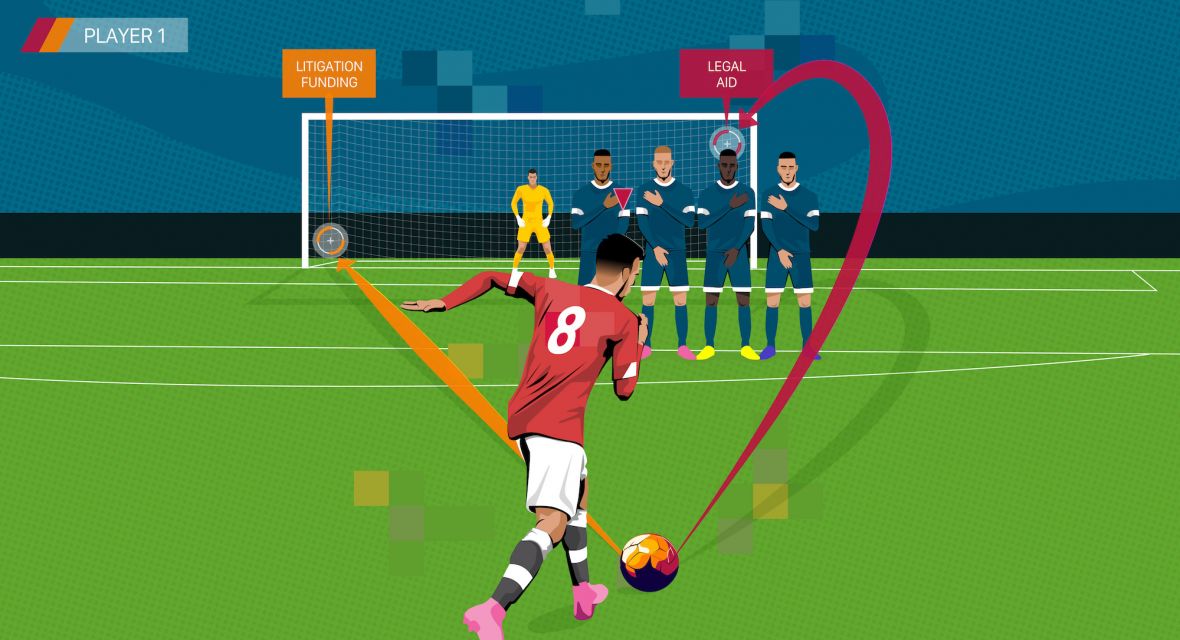Funding Justice - The Advantages of Litigation Funding
Introduction
More than 800 claims are brought before the FIFA Dispute Resolution Chamber (the “FIFA DRC”) each year. Players often have valid claims against current or former clubs and should therefore be empowered to pursue these claims without facing prohibitive costs.
To this end, Morgan Sports Law has partnered with Harbour Litigation Funding (“Harbour”) to provide players with access to a bespoke litigation funding facility, tailored to the financing of disputes before the FIFA DRC and the Court of Arbitration for Sport (“CAS”).
Overview of litigation funding
In summary, litigation funding provides players with the necessary means to fund their claim (including lawyers’ fees and procedural/administrative costs) in exchange for a portion of any compensation ultimately recovered from the defendant club.
However, if the claim is ultimately unsuccessful, the funding provider (in the case of our facility, Harbour) bears the full cost of the dispute, without any liability arising on the player’s part.
Under Morgan Sports Law’s partnership with Harbour, funding is available for footballers in international employment-related disputes with clubs, before the FIFA DRC and for any subsequent appeals to CAS.

What are the benefits of litigation funding in international football disputes?
Put simply, litigation funding eliminates the financial risk for players of pursuing claims against the current or former club. It allows them to instruct specialist lawyers without having to worry about paying their fees or any of the other costs of pursuing a claim.
Under traditional no-win-no-fee arrangements, players will only pay their lawyers’ fees if they win their claim, but they still have to pay all the procedural and administrative costs along the way, even if they lose.
With litigation funding, however, all those costs are covered, so the player only has to pay if they win the case. This is particularly valuable for CAS proceedings, where procedural costs often amount to tens of thousands of Swiss francs (in addition to lawyers’ fees and disbursements).
Crucially, litigation funding also covers any adverse costs awarded against a player, which allows them to pursue a claim against their former club without the fear of having to pay the club’s legal costs if their claim fails.
Without litigation funding, players can find themselves in a financially precarious position, as they face mounting legal fees, procedural expenses, and the risk of adverse costs. This allows clubs to effectively bully players into accepting unsatisfactory settlements, by dragging out proceedings and increasing the cost pressure on the player.
Litigation funding solves this problem by putting players and clubs on an equal financial footing, allowing players access to justice, and ensuring that their claim can properly be heard.

Litigation Funding vs Legal Aid
Litigation funding is also preferable to Legal Aid, which is available for arbitration costs applicable in the context of proceedings before CAS.
The new Football Legal Aid Fund is available to individuals without the financial resources to proceed before CAS. The fund will cover procedural costs, as well as any travel and accommodation costs, and will work to provide pro bono lawyers, too.
However, in order to access Legal Aid at CAS, players must make a detailed application evidencing their financial position, to prove that they are unable to afford the costs of the proceedings. These applications are often slow to be determined.
Morgan Sports Law’s partnership with Harbour allows for litigation funding to be arranged quickly and the availability of funding does not depend on a player’s financial position – it is available to anyone with a suitable claim.
Further, at CAS, players benefitting from Legal Aid may still be ordered to pay adverse costs (i.e., the defendant club’s costs) if they lose or are only partially successful in their claim. This represents a significant barrier to justice for players in financially difficult positions, which litigation funding eliminates.
Finally, litigation funding also offers players greater strategic flexibility in CAS proceedings by (a) allowing players to be represented by a counsel of their own choosing and that they might ordinarily not be able to afford (and not being limited, for example, to a counsel on the CAS pro bono lawyers list); and (b) covering the additional cost of submitting their claim to a three-member Panel. This option is unavailable for those relying on Legal Aid, as CAS will submit their claims to a Sole Arbitrator, to save costs. However, a three-member Panel allows a player to appoint one arbitrator of their own choosing and is generally considered a preferable means for resolving disputes.

Conclusion
Litigation funding therefore presents an innovative way for players to finance international employment-related disputes with their current or former clubs before CAS or the FIFA DRC.
In contrast to Legal Aid, litigation funding provided by Morgan Sports Law and Harbour additionally grants players access to top-tier legal representation, making it one of the most complete solutions for players seeking to enforce their rights whilst mitigating the financial risks of doing so.


